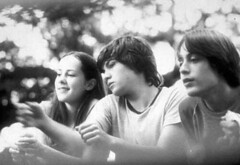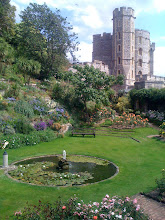The Dangerous Lives of Alter Boys
And William Blake’s “The Tyger”
Label each of Blake’s Contrary States of the Human Soul as Innocence, Experience, or Organized Innocence
1 This state relies upon recognition of the Church’s desire for people to be obedient and accept oppression, poverty, and inequality. It is a profound disillusionment with human nature and society. One entering this state sees cruelty and hypocrisy only too clearly but is unable to imagine a way out. _______________________________________________
2. This state is a higher form of consciousness. In this state, one’s sense of the divinity of humanity coexists with oppression and injustice, however involves continued recognition and active opposition to them. __________________________________________________
3. A state of genuine love and naïve trust toward all of human kind, accompanied by the unquestioned belief in Christian doctrine. Those in this state did not realize that the Church was using religion as a means of social control. ________________________________________
Scene 1:
The Note: Francis, Margie and William Blake’s The Tyger (on the bleachers at soccer practice)
Examine this scene, keeping in mind Blake’s definition of Innocence. Describe how this scene embodies innocence. How does Blake’s poem fit into the scene?
Scene 2: Boys on the Bus: Tim and Sister Assumpta and the book of Blake’s poetry
Paraphrase Sister Assumpta’s view of William Blake and considering William Blake’s States of Being, determine her role in Tim’s Bildungsroman.
Do you agree with Sister Assumpta’s view of William Blake? How does her view reflect the Romantic ideal of the Church using innocence as a means of social control? How is Sister Assumpta trying to control Tim?
Scene 3: Kids at the Zoo: The plan to get back at Sister Assumpta
Who, in this scene, seems to most clearly understand Blake’s concept of Organized Innocence? Read and interpret Blake’s poem “The Tyger”. What does the poem reveal about Blake’s view of experience? Using the poem’s unlocked meaning, consider what the guide says about the souls of animals. Whom do you think the guide would claim created the beast? Whom would Sister Assumpta claim created it?
Scene 4: Margie’s Secret
Consider Margie’s behavior from the beginning of the film up until she reveals her secret to Francis. Compare that behavior to her secret and to the fact she attempted suicide and determine where she is on her Bildungsroman at this point in the film.
Scene 5: Loss of Innocence – Tim and Francis and the dog on the side of the road.
In this scene, consider the stages Tim traveling through and toward. Is Tim in a state of innocence, experience or organized innocence? What actions would lead you to believe that he possesses innocence? Experience? Both?
Scene 6: Blake’s poem “The Tyger”, revisited
Has Francis moved from a state of Innocence to Experience to Organized Innocence? How does this scene depict Francis’ movement into this state? What is he doing that displays active opposition? Why was this poem a good choice for Francis? What does it symbolize to him? Whom do you think Francis would say made the tiger?
Subscribe to:
Post Comments (Atom)


No comments:
Post a Comment